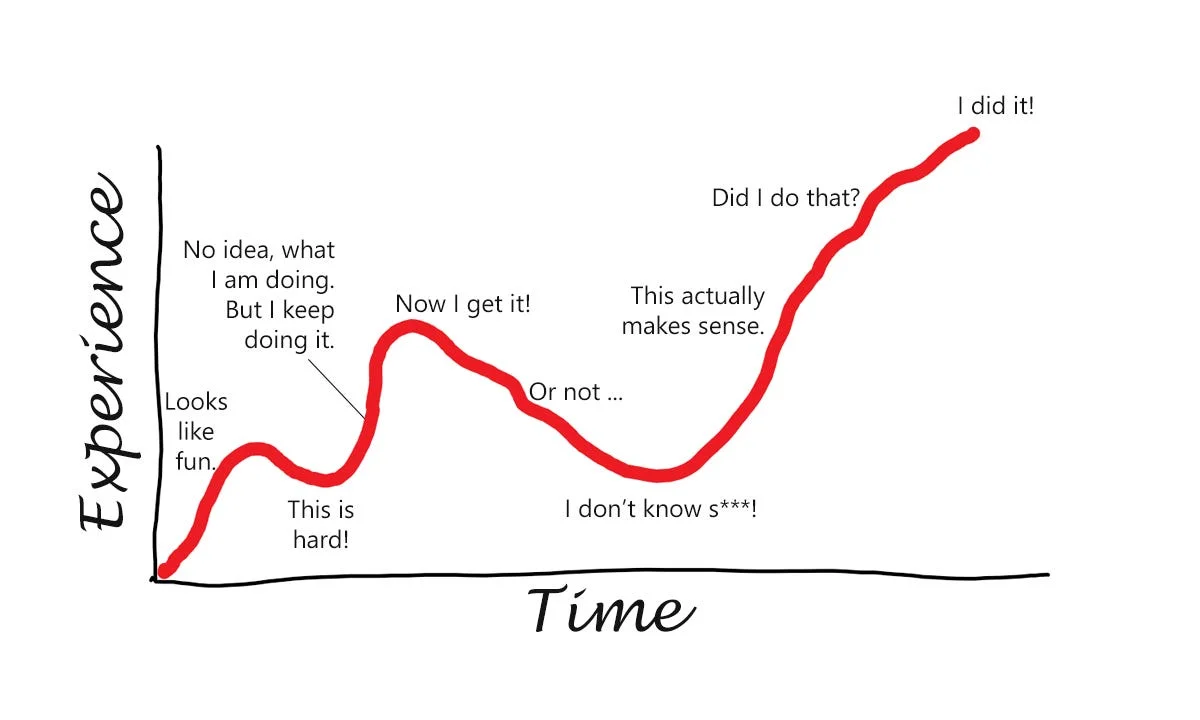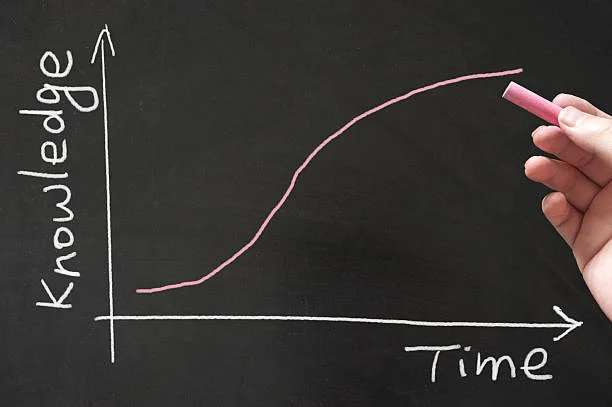When it comes to learning new things, let’s face it—it’s rarely a walk in the park. Mastering a skill is more like hiking a steep trail full of switchbacks than strolling down a straight path. If you’ve heard about the learning curve, you know it illustrates the typical ups and downs of progress. Spoiler alert: it’s not as linear as many people assume.
Some folks mistakenly believe that every hour you pour into learning yields steady improvement. But in reality, learning is more like a rollercoaster ride—a thrilling mix of breakthroughs, plateaus, and yes, frustrating dips. Spend enough time honing a skill, and your progress will probably resemble a jagged, unpredictable line rather than a smooth upward slope.

You’ll hit walls—no doubt about it—but you’ll also experience those exhilarating moments of breakthrough. The key is to keep pushing forward, even when it feels like you’re going nowhere.
Other Tips for Learning New Skills:
1. Learn from Others
No need to reinvent the wheel. Watch all those YouTube tutorials, attend a class, or ask a friend for tips. People who have walked the path before you often have nuggets of wisdom that can save you hours of frustration. Plus, learning from others keeps things interesting—who doesn’t love a good hack that makes life easier?
2. Take Breaks
Burnout is real, and it’s a buzzkill for any learning journey. Give your brain a breather now and then. Whether it’s a short walk, a quick nap, or some mindless scrolling (we won’t judge), stepping away from your task can help you come back refreshed and ready to tackle the next challenge.
3. Block Out Time
Time management is your secret weapon. Dedicate specific blocks of time to learning—whether it’s 20 minutes or an hour. The trick is consistency. Just don’t overdo it. Remember, your health and well-being come first. Pace yourself so you don’t end up hating the process.
4. Start with Basic Tools
Tempting as it may be to splurge on top-tier gear right out of the gate, resist the urge. Stick to beginner-friendly equipment or tools. As you get more experienced, you’ll have a clearer idea of what you actually need—and what’s just shiny overkill.
5. Don’t Chase Perfection
Perfection is overrated, especially when you’re just starting out. It’s perfectly fine to be a bit terrible at first—that’s how you learn! One of my favorite reminders is, “Even if you’re slow, you’re still lapping everyone on the couch.” Progress, no matter how small, beats standing still.
6. Know When to Quit
Wait, what? Quit?! Yes, sometimes it’s okay to throw in the towel—strategically, of course. Not every skill is meant for everyone, and that’s okay. Maybe it’s not the right time, or perhaps it’s not essential for your happiness or quality of life. Knowing your limits and prioritizing what truly matters can save you a lot of unnecessary stress.
Learning isn’t a race; it’s a personal journey with its own rhythm. Embrace the wobbles, celebrate the small wins, and most importantly, enjoy the ride—even when the road gets bumpy. After all, every stumble brings you closer to mastering something new.

Leave a Reply
You must be logged in to post a comment.